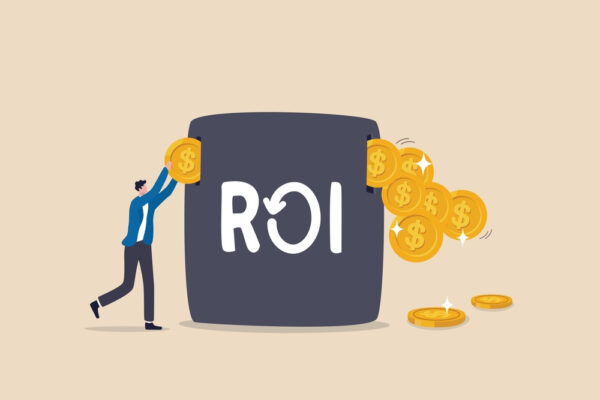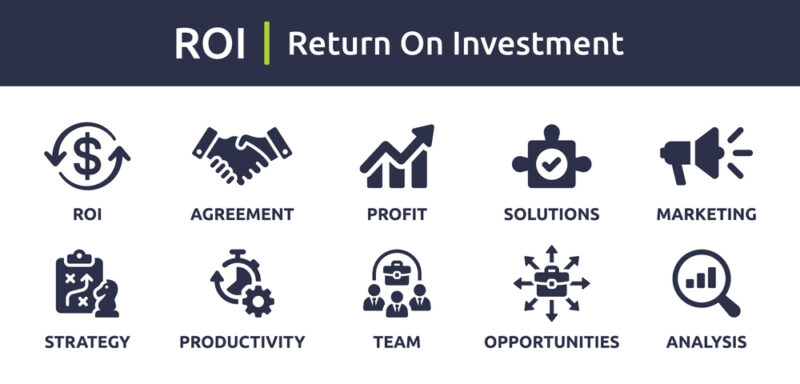- Understanding Marketing Automation ROI
- Importance of Marketing Automation ROI
- Key Factors Influencing Marketing Automation ROI
- Strategies to Maximize Marketing Automation ROI
- Common Mistakes to Avoid
- Conclusion
Understanding Marketing Automation ROI
Marketing automation ROI (Return On Investment) measures the financial return generated from your marketing automation efforts compared to the costs incurred.
This is one of the most important factors to analyze to determine whether your marketing strategies are effective.It provides a clear picture of how effective your marketing automation strategies are in driving revenue and growth.
A high ROI indicates that your investments in marketing automation are generating excellent returns and improving your net income. This is generally a sign that your marketing strategies are working, are adapted to your needs and are bringing you new customers.

Importance of Marketing Automation ROI
Understanding and optimizing marketing automation ROI is crucial for several reasons:
- Resource Allocation: It helps in making informed decisions about where to allocate resources for maximum impact. This allows you to be able to adjust your resource and improve your budget.
- Performance Measurement: Provides a metric to measure the effectiveness of your marketing strategies. You really measure your marketing with numbers.
- Cost Efficiency: Ensures that marketing budgets are used effectively, minimizing waste and maximizing returns. This allows you to be able to analyze where you can save money and where you need to add budget. Example: sometimes you need to add budget on email marketing and remove budget on paid ads.
- Strategic Planning: Informs future marketing strategies and investments based on past performance. By analyzing what happened with numbers you can better predict.
Key Factors Influencing Marketing Automation ROI
Several factors influence the ROI of marketing automation efforts. Here are somes factors that have an impact on ROI :
- Target Audience: Accurate targeting ensures your messages reach the right audience, enhancing engagement and conversion rates.
- Content Quality: High-quality, relevant content drives engagement and encourages conversions. It’s most important to make high quality and valuable content in your marketing. This allows you to improve your ROI.
- Segmentation: Effective segmentation allows for personalized messaging, which significantly improves response rates.
- Integration: Integrating marketing automation with other tools (like CRM systems) enhances data accuracy and operational efficiency. You no longer have to search for your data everywhere, everything is centralized and easily visible in one click.
- Analytics and Reporting: Regularly analyzing performance metrics helps identify successful strategies and areas for improvement. It is imperative to look at the figures and regularly analyze all your marketing actions (email, content on social networks, etc.).
Strategies to Maximize Marketing Automation ROI
Maximizing your marketing automation ROI involves strategic planning and execution. Here are some effective strategies:
1. Personalization
Personalized messages significantly improve engagement rates. Use customer data to tailor communications to individual preferences and behaviors.
2. Lead Scoring
Implement lead scoring to prioritize high-quality leads (qualified lead) for you business. This ensures that resources are focused on prospects most likely to convert, enhancing efficiency and effectiveness.
3. A/B Testing
Conduct A/B tests to optimize your email campaigns, landing pages, and other marketing materials (content on social media). Testing different elements helps identify the most effective approaches, improving overall performance.
4. Nurture Campaigns
Develop automated nurture campaigns to engage leads over time. Providing valuable content that guides them through the buyer’s journey increases the likelihood of conversion. Improve your funnel, your retargeting strategie etc.
5. Integrate CRM
Integrate your marketing automation platform with your CRM system, it’s important. This ensures seamless data flow and provides a holistic view of customer interactions, enhancing decision-making and strategy formulation.

Common Mistakes to Avoid
While implementing marketing automation, it’s essential to avoid common mistakes that can hinder ROI:
- Overlooking Data Quality: Ensure your data is accurate and up-to-date. Poor data quality can lead to ineffective campaigns and wasted resources.
- Ignoring Analytics: Regularly review performance metrics and adjust strategies based on data-driven insights. It’s very very important to analyze the data and make decision thanks to the data.
- Lack of Segmentation: Failing to segment your audience can result in generic messages that fail to engage effectively.
- Underutilizing Features: Take full advantage of your marketing automation tools’ features to maximize their potential. Use a maximum of the features you can have with our tools.
- Neglecting Customer Experience: Always prioritize the customer experience in your automation strategies to build long-term relationships.
Conclusion
Maximizing the ROI of your marketing automation requires a strategic approach, continuous optimization and rigorous data analysis. By understanding the key factors influencing ROI, implementing effective strategies, and avoiding common mistakes, you can achieve significant returns on your marketing investments. Start applying these insights today to enhance your marketing automation efforts and drive sustainable growth for your business.





